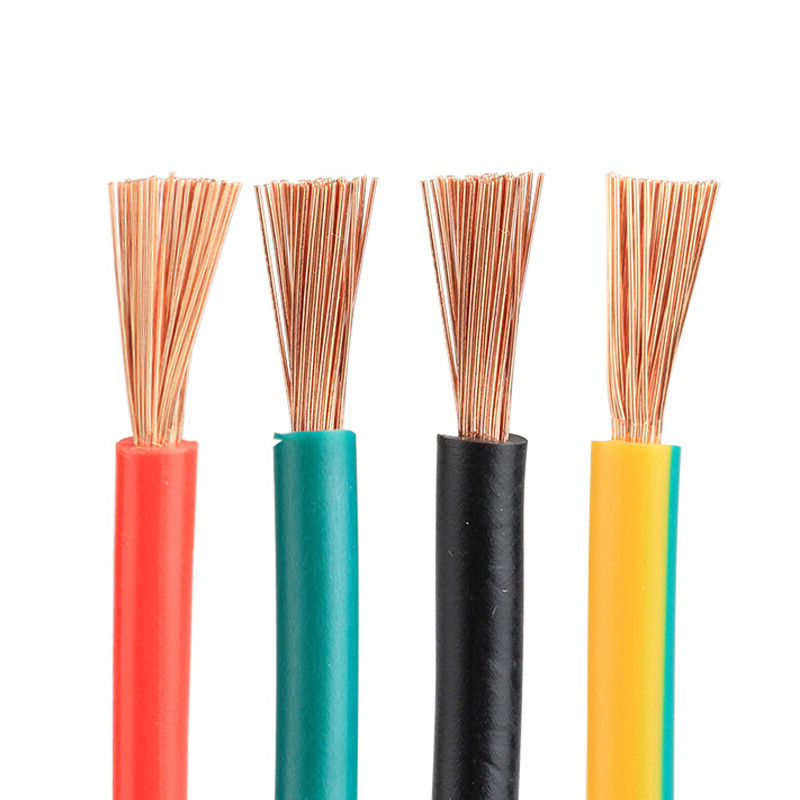
ce certification kabel construction
CE Certification and Kabel Construction Ensuring Quality and Compliance
In today's global market, safety and quality are paramount, especially in industries that deal with electrical installations and automation. One of the key regulatory frameworks that promote these standards in Europe is the CE marking. This article explores the significance of CE certification in kabel (cable) construction, highlighting its implications for manufacturers and consumers.
Understanding CE Certification
CE marking, which stands for Conformité Européenne, signifies that a product complies with the necessary health, safety, and environmental protection standards required by the European Union (EU). The CE mark allows products to be sold across the EU and is a legal requirement for a wide array of items, including electrical cables.
For manufacturers, obtaining CE certification is not just about compliance; it's a gateway to market access in the EU. The certification process involves rigorous assessments that vary based on the product directive applicable to the item in question.
Importance of CE Certification in Kabel Construction
1. Safety Assurance The foremost reason for obtaining CE certification is to guarantee that the products meet strict safety guidelines. Cables, when improperly constructed, can cause hazardous situations, including electrical fires or shock incidents. CE certification ensures that kabel products adhere to EU regulations, which help to mitigate these risks.
2. Quality Control CE marking also signals that a product has been manufactured under strict quality control measures. This quality assurance attracts customers who seek reliable and durable products. In kabel construction, this is crucial since the integrity of the cables directly impacts the performance and safety of electrical systems.
3. Market Acceptance With CE certification, manufacturers can distribute their cables throughout the European market without facing additional barriers or compliance checks. This certification is recognized across all EU member states, making it essential for any business looking to expand its operations within Europe.
4. Consumer Trust In an increasingly competitive marketplace, CE marking boosts consumer confidence. When customers see the CE mark on cable products, they are more likely to trust their safety and efficacy. This trust can lead to increased sales and brand loyalty for manufacturers.
The CE Certification Process in Kabel Construction
ce certification kabel construction

The process of achieving CE certification for cables involves several steps
1. Identification of Applicable Directives Different types of cables may fall under various directives, such as Low Voltage Directive (LVD) or Electromagnetic Compatibility (EMC) Directive. Manufacturers must determine which directives apply to their products.
2. Product Testing Manufacturers will need to conduct comprehensive tests to ensure compliance with EU standards. This can include safety testing, performance assessments, and environmental impact evaluations.
3. Technical Documentation A technical file must be prepared, detailing the design, production process, and inspection details of the kabel. This documentation serves as evidence of compliance with all applicable directives.
4. Declaration of Conformity After successful assessment, manufacturers must issue a Declaration of Conformity, stating that their products meet all the relevant standards. This document should accompany every product sold.
5. Affixing the CE Mark Once all the above steps are completed, the CE mark can be legally affixed to the product.
Challenges and Future Trends
While CE certification is essential, the process can be complex and may pose challenges for manufacturers, particularly small and medium-sized enterprises (SMEs). These businesses may lack the resources necessary for comprehensive testing and documentation.
In response to global concerns around sustainability and environmental impact, future trends in kabel construction may see increased emphasis on eco-friendly materials and practices. Certifications that go beyond CE, including those focusing on sustainability, are likely to gain traction.
Conclusion
In conclusion, CE certification in kabel construction is a vital component that ensures safety, quality, and compliance for electrical products in the European market. As technological advancements and environmental concerns shape the future of the industry, maintaining high standards in kabel construction will be crucial for both manufacturers and consumers. Therefore, stakeholders must stay informed about the evolving regulatory landscape and strive for excellence in their products. Ultimately, the goal is to mitigate risks and enhance the overall safety and efficiency of electrical systems across Europe.
-
The Quantum Leap of XLPE Cable in Power DistributionNewsMay.29,2025
-
Mastering the Essentials of Building WireNewsMay.29,2025
-
Innovative Horizons of Rubber Trailing CablesNewsMay.29,2025
-
Exploring the Versatile World of Rubber CablesNewsMay.29,2025
-
Decoding the Mysteries of Building CablesNewsMay.29,2025
-
Advancements Redefining Control Cable TechnologyNewsMay.29,2025
-
Why It's Time to Replace Old Rubber CablesNewsMay.28,2025














